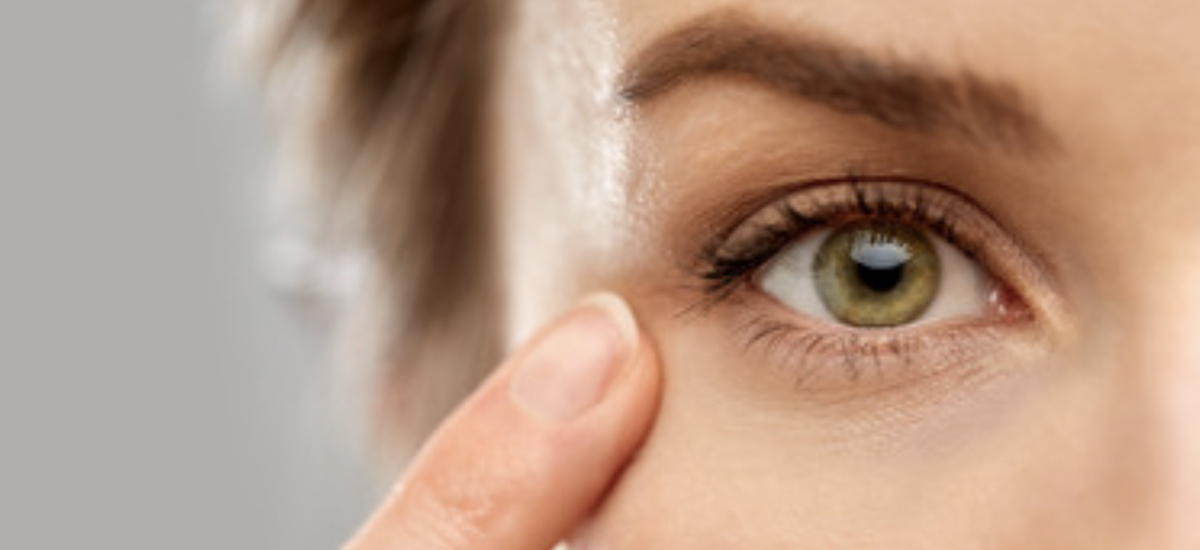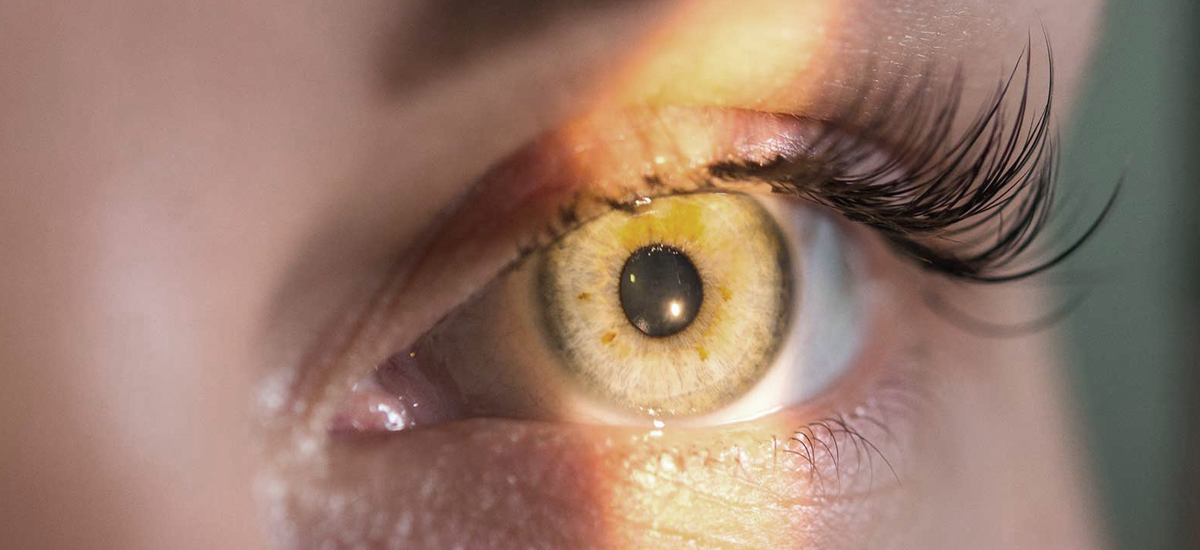How to Choose Prescription Eyeglasses for Small Eyes

Contrary to someone with farsightedness, a nearsighted person may not have magnifying lenses, which can make the eyes appear smaller to someone looking directly into the eyeglasses. If this is you, you may be asking yourself how to choose the best prescription eyeglasses for small eyes.
Follow these three simple steps to get started.
How to Choose Prescription Eyeglasses for Small Eyes
Step #1: Try the eyeglasses on to ensure the lenses are the right distance from your eyes.
How to choose prescription eyeglasses for small eyes starts with checking how far away your eyes are from the lenses. The lens should not be pressed up against your eye, as this affects the way your eye appears in the frames.
Your eyes will also look much better if they are centered as much as possible in each lens. This can make your eyes appear larger, especially if you are nearsighted, by making your eye the focal point.
Step #2: Choose thin frames that suit your face shape.
If you have small eyes, avoid bulky frames. They can minimize the appearance of your eyes, which will not be a flattering look for you. Instead, choose thin frames, which will work more to your benefit. Thin, lightweight frames are also easier to use to create different makeup looks that can make your eyes look bigger.
Additionally, consider your face shape in the process of choosing frames. People with small eyes tend to have a more narrow face, which is best suited to styles such as rectangular or cat-eye frames. Avoid picking any frames that are too boxy, as your eyes can get lost in them. Color-wise, darker shades will work best with small eyes as they give the appearance of the eye being larger.
Step #3: Select high-index lenses.
Once you find frames you like, pair them with high-index lenses. These lenses are plastic and they allow you to get a strong prescription in a thinner and lighter design. They can also reduce how magnified or minimized your eyes may look, which makes them a great solution for people with small eyes.
High-index lenses are ideal for people looking for more comfortable lenses at an affordable cost. They’re also considered more attractive on nearsighted people. Consult your eye doctor if you have any questions about how these prescription lenses can work for you.
Summary of Finding the Right Eyeglasses for Small Eyes
Looking your best in your eyeglasses is vital for your confidence, and it will ensure that you’re getting the most out of your eyewear. Here’s a quick recap of how to choose prescription eyeglasses for small eyes:
- The distance from the lens to the eye is something to consider when measuring for new frames. You want to keep your eyes centered in the frames to help them look their best.
- The style of your frames can affect the appearance of your eyes as well. Thin frames can work to the wearer’s benefit, as will frames darker in color. Avoid square-shaped frames to prevent your eyes from looking even smaller.
- Consider high-index lenses to reduce the magnification level of your eyewear. They can make your eyes look larger or smaller as desired.
While choosing new eyeglasses can be stressful, if you follow these tips, you will be looking your absolute best and feeling great in no time. All your features help to make you unique, and your eyeglasses should reflect the qualities that make you, you.
.
Shop at For Eyes for your next pair of glasses
Show off your unique style and browse our wide variety of frames from your favorite brands for men, women and kids. Stop by your local For Eyes or order online at your convenience.











